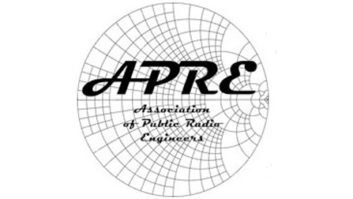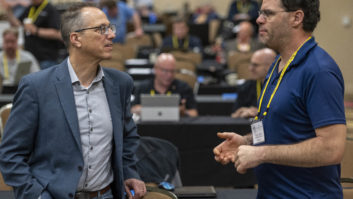Radio serves, it enlightens. And there’s nothing wrong with having commercial success, too.
Those were the kickoff sentiments from Federal Communications Commissioner Michael O’Rielly in a speech on March 28 to the Hispanic Radio Conference in Fort Lauderdale, Fla.
Despite his jokes about an Irish surname and lack of mastery of the Spanish language, O’Rielly said that he was honored to highlight the unifying features that brought him before the 2017 conference, which brings together leaders in the Hispanic radio, advertising and media communities.
“[W]e are all here today … because of our truly unifying feature: our immense interest in radio broadcasting,” he said. “For the FCC, it’s a responsibility; for you, it serves as a profession; and for all of us, it should be a passion.”
At its heart, radio pulls listeners together by matching a chosen format with the needs of the surrounding community, and when done right, it can generate a spark in the soul of listeners and serves to soothe, entertain, inform and enlighten, he said.
And nowhere is that more evident than in those stations focused on serving the nation’s Hispanic population, O’Rielly said.
Hispanic radio has thrived because of its ability to use a host of unique formats — including Mexican Regional, Spanish Contemporary and Spanish Adult Hits — in order to combine audience interests with the deep desire of listeners to retain their heritage and cultural identities.
He highlighted recent figures from the 2016 Nielsen State of the Media Report, which found that 40.4 million Hispanics use radio per week. Ninety-seven percent of all Hispanics are reached weekly by radio, listening for an average of 12 and half hours per week, with 70% of that listening time happening outside of the home.
O’Rielly identified key topics that impact the Hispanic radio market, including the “huge problem” of pirate radio in South Florida; it’s had a disproportionate impact on the Hispanic radio community, he said. He pointed specifically to a deficiency in the commission’s enforcement tools, and asked for the audience’s assistance in batting down arguments that pirate radio stations are somehow training grounds for those seeking to enter the field, or that these pirate stations are bringing a unique service to minority communities and thus should be allowed to continue.
His visit to Florida included a stop at the Miami Field Office to ask why some pirate stations had not yet been eradicated. He also discussed the obstacles that the office faces in expediting cases and what additional authority would be of assistance.
O’Rielly also touched on the issue of radio ownership limits, saying that the current cap “prevents the exploration of market synergies and keeps you from best serving your communities,” he said. “I am not going to suggest that consolidation or aggressive purchasing in your market is appropriate. But preventing you from even considering such deals is harmful to the long-term health of your stations.”
He also mentioned the issue of AM/FM subcap limits, saying that these limits may no longer make sense. “While we need to look at raising the overall ownership caps within a market, there is little reason to maintain the subcaps,” he said.
“[T]he commission’s AM radio revitalization efforts, especially giving AM operators the ability to obtain and use FM translators, have curtailed or completely eliminated [the need to overly protect AM stations] by improving the ability of AM radio stations to cover and serve markets,” he said.
But even if bigger AM owners exit the market in preference for an FM station, “it would only increase the chances for new entrants, like Hispanic radio and others, to serve diverse and niche populations,” he said. “Since minority ownership has been one of the biggest obstacles to modernizing our media ownership rules in the eyes of some, isn’t this potentially a good thing?”
O’Rielly also touched on the incentive auction, and recognized that many radio stations will be impacted by the repacking of television broadcasters into a smaller spectrum footprint. He said that the co-location of radio and TV facilities is a “common situation,” but that he would keep the group’s concerns in mind and work toward an outcome that minimizes the impact on TV and radio stations alike.










